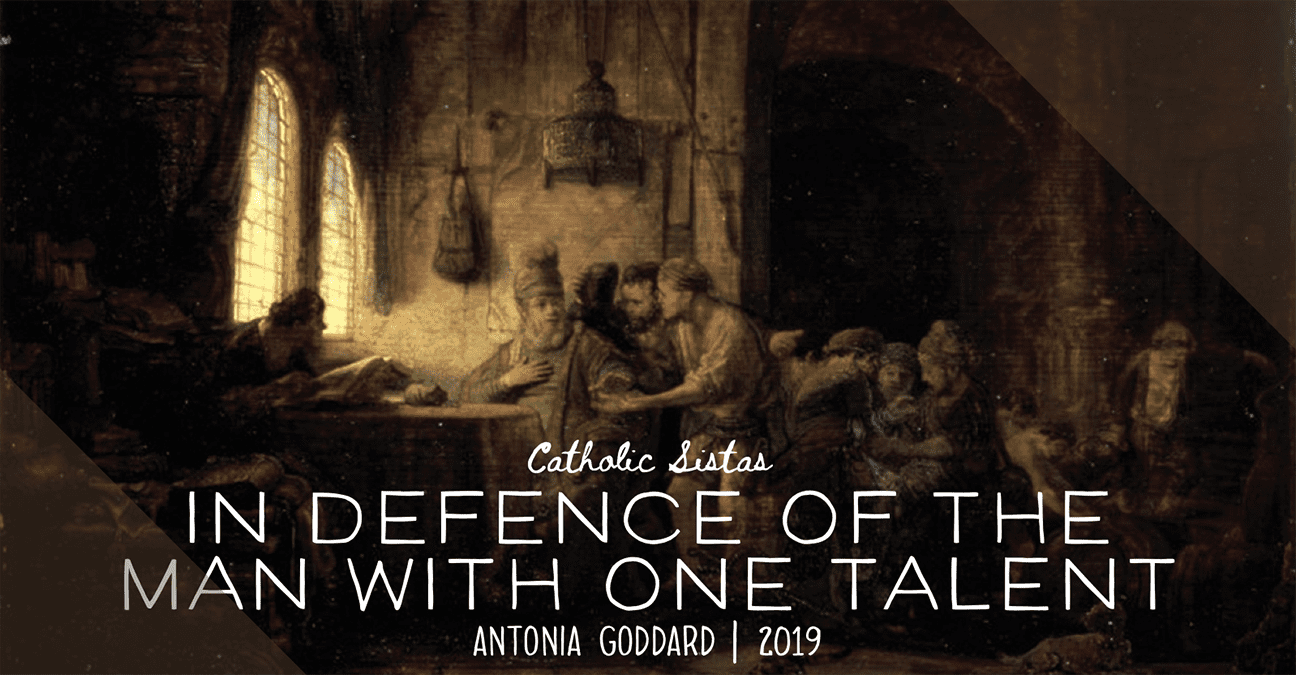
The Parable of the Labourers in the Vineyard, Rembrandt Harmenszoon van Rijn (1637), oil on panel, The Hermitage, St Petersburg.
I have always had a particular dislike for the parable of the talents. This is mostly because however much I try to twist my brain around it, I fail to understand it, and usually end up sympathising greatly with the Man with One Talent.
It is hard not to feel sorry for him. After all, the Master has entrusted a slave with a talent (a vast sum of money, especially to give to a man with little to no experience in banking) and instructed him to look after it. The slave solemnly promises to do so, and keeps the talent in the safest place he knows, hidden from thieves and looters and prying eyes. When the Master returns he joyfully presents the talent back to him, presumably delighted that he has succeeded in his duties, perhaps even expecting a reward or word of thanks for his prudence. And yet the Master responds by punishing him.
(Don’t even get me started on giving his talent to the man who has ten. That’s just blatantly unfair.)
Of what happened in the years while the Master was away, the Gospels are curiously (irritatingly) silent. Perhaps the slave – a poor man of economics but a kind husband and father – spent the years with his family, bringing up his children in love and respect. And yet the Master focusses only on the slave’s failure to earn him more money, comparing him unfavourably to the two successful slaves.
I have always felt a certain affinity for the Man with One Talent. I am fortunate to have been blessed with decent brains and a gift for writing; at school and university I worked hard and achieved good grades. I had to work hard for them, of course, but I had hoped – and indeed, was led to believe – that my hard work combined with the God-given talents for which I was exceptionally grateful, would be rewarded with success and employment, and an opportunity to serve God.
Of course, things are never so simple. Try as I might, I seem to be failing at every opportunity to achieve what I have worked towards for so many years. Every day I feel more like the Man with One Talent, letting the gifts that God has given me rot because I have failed to achieve what He wants of me.
*
The most common takeaway from the talents parable is the idea that success is the product of hard work and talent. It reminds me of a quote that used to hang in my ballet studio, famously attributed to Anna Pavlova:
God gives talent. Work transforms talent into genius.
Yet sometimes it doesn’t pay off. Sometimes we can work really hard with every talent God has given us, and it doesn’t work out. My failure to land a career as a ballerina was not, as I have believed for so many years, because I didn’t work hard enough. My failure to find a career where I can use my talents to make a difference in the world is not because I don’t want it enough, or because I didn’t try hard enough.
If we teach that success is a combination of hard work and God-given talent, it runs a real risk that when we fail, we are tempted to either blame God or ourselves. Neither is a helpful or healthy viewpoint.
Turning back to the talents parable, I wonder if English’s clunky double-meaning of the word talent has led us to tie it too literally to the idea of our own abilities and success. Perhaps instead of success, we owe God a return on His investment, giving him back everything that He has given us, and more. A couple of chapters before this, Jesus tells us to render unto God what belongs to God. Maybe that’s all God is asking of us: our devotion and our love.
I still don’t quite understand the parable. But devotion and love, that’s manageable for today.
